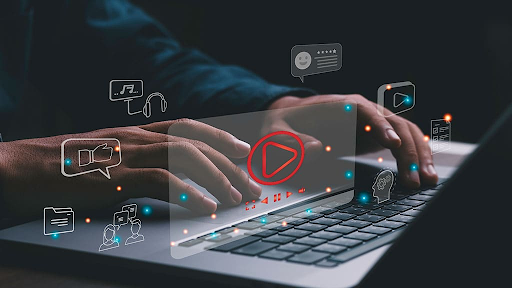What Does a Private Investigator Do in Background Checks?
Private investigators, often depicted as enigmatic figures in popular culture, have a mystique that captures the imagination. From film noir detectives to modern-day sleuths, these professionals are frequently portrayed as shadowy figures working in the background to solve mysteries and crimes. However, the reality of what a private investigator does is far more nuanced and varied than these portrayals suggest. The profession encompasses a wide range of activities and requires a diverse skill set to handle various cases. Understanding what private investigators (PIs) truly do is crucial, especially for those in Sydney looking to hire one or considering a career in this field.
What Does a Private Investigator Do? An Overview
Private investigators, often referred to as PIs, are hired to conduct investigations, gather evidence, and provide insights for their clients. These clients can range from individuals suspecting infidelity to businesses needing to perform background checks on potential hires. In Sydney, private investigators must be licensed, which involves specific training and adherence to local laws and regulations. Their main objective is to uncover the truth and present facts to their clients, often working in collaboration with lawyers, law enforcement, or corporate entities.
Core Responsibilities of a Private Investigator
The core responsibilities of a private investigator are diverse, covering various tasks depending on the type of case they are handling. Here are some of the main duties that private investigators in Sydney typically perform:
- Surveillance: One of the most common responsibilities is surveillance. PIs may be required to monitor an individual's movements, document their activities, and gather photographic or video evidence to support a case.
- Background Checks: Private investigators frequently conduct background checks on individuals or companies. This could be for pre-employment screening, tenant verification, or due diligence in business dealings.
- Locating Missing Persons: Whether it’s a lost relative, a debtor avoiding repayment, or someone who has disappeared under suspicious circumstances, PIs often take on missing person cases.
- Investigating Fraud: In cases of insurance or financial fraud, private investigators gather evidence to prove or disprove fraudulent claims. This could involve anything from investigating a staged car accident to verifying the legitimacy of an insurance claim.
- Gathering Evidence for Legal Cases: Lawyers often employ private investigators to gather evidence that can be used in court cases, ranging from civil disputes to criminal defense.
Types of Cases Private Investigators Handle
Private investigators handle a variety of cases, each requiring a different set of skills and approaches. Some of the most common types of cases handled by Sydney private investigators include:
- Infidelity Cases: These are among the most common cases handled by PIs. In these situations, the investigator is tasked with determining whether a spouse or partner is being unfaithful. This often involves extensive surveillance and evidence gathering.
- Fraud Investigations: PIs are often hired to investigate potential fraud cases, including insurance fraud, workers' compensation fraud, or corporate fraud. This requires not only surveillance but also in-depth research and sometimes undercover operations.
- Background Checks and Pre-Employment Screening: Many companies in Sydney hire private investigators to conduct thorough background checks on potential employees, ensuring they have no criminal records or undisclosed negative history that could impact the business.
- Child Custody Investigations: In divorce or separation cases, PIs may be hired to gather evidence regarding a parent's behavior, lifestyle, and capabilities to help determine custody arrangements.
- Corporate Investigations: These include internal theft investigations, intellectual property theft, and breaches of non-compete clauses. Businesses in Sydney often hire private investigators to protect their interests and ensure compliance with legal and ethical standards.
The Tools and Techniques Used by Private Investigators
Private investigators rely on a variety of tools and techniques to gather information and evidence. With the advent of technology, the methods and tools used in investigations have evolved significantly.
Surveillance Equipment and Technology
Surveillance is a cornerstone of private investigation work, and modern technology has significantly enhanced its effectiveness. Common surveillance tools used by private investigators in Sydney include:
- Cameras and Video Recorders: High-definition cameras, night-vision cameras, and hidden cameras are commonly used to capture clear images and videos, even in challenging environments.
- GPS Tracking Devices: PIs often use GPS trackers to monitor the movements of vehicles, especially in infidelity or fraud investigations where tracking movement patterns is crucial.
- Drones: Drones have become valuable tools for surveillance, allowing investigators to monitor hard-to-reach areas without being detected.
- Audio Recording Devices: Covert audio recording devices are used to capture conversations that may provide critical evidence, although PIs must always comply with local privacy laws.
Research and Information Gathering Techniques
Besides physical surveillance, a significant portion of a private investigator's work involves research and information gathering. This includes:
- Background Checks: Accessing public records, court documents, and social media profiles to gather comprehensive information about an individual’s history.
- Public Records Search: Investigators often search public records to verify facts and gather evidence. This can include criminal records, marriage and divorce records, property records, and more.
- Database Access: Licensed private investigators in Sydney have access to specific databases that are not available to the general public. These databases can provide crucial information that aids in solving a case.
How to Become a Private Investigator: Education and Training
If you're interested in becoming a private investigator in Sydney, there are specific steps to follow, including education, skills training, and licensing.
Necessary Skills and Qualifications
To become a private investigator, certain skills and qualifications are essential:
- Analytical Skills: The ability to analyze information and connect dots is crucial for uncovering facts and solving cases.
- Attention to Detail: Private investigators must be detail-oriented to ensure no piece of evidence is overlooked.
- Communication Skills: Effective communication is vital, whether it’s interviewing witnesses, collaborating with law enforcement, or presenting findings to clients.
- Technical Skills: Familiarity with surveillance equipment, databases, and modern technology is necessary for efficient investigation work.
Licensing and Certification Requirements
In Sydney, and throughout New South Wales, private investigators must obtain a license to practice. This involves:
- Completing a Certificate III in Investigative Services: This is the minimum educational requirement, covering various aspects of investigative work, from surveillance to legal knowledge.
- Gaining Relevant Experience: Practical experience is often necessary, which can be gained through internships or working with established private investigation firms.
- Applying for a PI License: After completing the educational and experience requirements, aspiring private investigators must apply for a license with the NSW Police Force.
Ethical and Legal Considerations in Private Investigation
Private investigation is bound by legal and ethical guidelines to ensure investigations are conducted lawfully and respectfully.
Understanding the Legal Boundaries
Private investigators must operate within the confines of the law. Some key legal boundaries they must be aware of include:
- Privacy Laws: In Australia, privacy laws are strict, and PIs must avoid illegal surveillance or recording of private conversations without consent.
- Trespassing Laws: Investigators cannot trespass on private property without permission. Any evidence gathered through illegal means is inadmissible in court.
- Defamation Laws: PIs need to be cautious about making any false or damaging statements about individuals or businesses.
Common Ethical Dilemmas Faced by Private Investigators
The field of private investigation is riddled with ethical challenges. Common dilemmas include:
- Balancing Client Demands with Ethical Practice: PIs may face pressure from clients to act beyond legal limits, and it's crucial to maintain integrity.
- Handling Confidential Information: Investigators must ensure that all information gathered is kept confidential and used only for the intended purposes.
Conclusion
The profession of a private investigator is as diverse and dynamic as it is challenging. Far from the stereotypes portrayed in movies and television shows, private investigators in Sydney perform a variety of tasks, from surveillance and fraud investigation to background checks and legal evidence gathering.
With the right skills, training, and ethical commitment, private investigators play a vital role in uncovering the truth and providing valuable services to their clients. For those interested in pursuing a career in this field, it’s essential to understand the complexities involved and adhere to the stringent legal and ethical standards governing the profession.
FAQs About Private Investigator
What are the main duties of a private investigator?
Private investigators handle a wide range of duties, including surveillance, background checks, fraud investigations, locating missing persons, and gathering evidence for legal cases. They may work for individuals, businesses, or legal entities, depending on the case requirements.
How do private investigators conduct surveillance?
Private investigators use various methods for surveillance, including physical observation, hidden cameras, audio recording devices, GPS tracking, and even drones. They carefully follow legal guidelines to avoid violating privacy laws, ensuring their findings are admissible in court.
Can anyone become a private investigator?
Not everyone can become a private investigator. In Sydney and throughout New South Wales, aspiring PIs must complete a Certificate III in Investigative Services, gain relevant experience, and obtain a license from the NSW Police Force. Additionally, they must possess key skills such as analytical thinking, attention to detail, and strong communication abilities.
What legal restrictions do private investigators face?
Private investigators must operate within legal boundaries, including privacy laws, trespassing laws, and defamation laws. They cannot perform illegal surveillance, trespass on private property, or make false statements about individuals or businesses. All gathered evidence must be obtained legally to be admissible in court.
What types of cases do private investigators typically handle?
Private investigators handle a variety of cases, including infidelity investigations, fraud detection, background checks, child custody disputes, missing persons, and corporate investigations. Each type of case requires a different approach and set of skills, making the profession both diverse and challenging.




